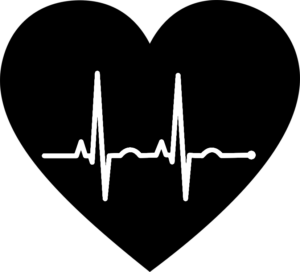PTSD and Cardiovascular Disease Risk
♦ Psychological and biological mechanisms linking trauma with cardiovascular disease risk.
♦ The long arm of mental health: new urgency with the COVID-19 pandemic.
♦ Posttraumatic stress disorder and inflammation: untangling issues of bidirectionality.
♦ Posttraumatic stress disorder onset and inflammatory and endothelial function biomarkers in women.
♦ The association of PTSD with clinic and ambulatory blood pressure in healthy adults.
♦ Post-traumatic stress disorder and cardiometabolic disease: improving causal inference to inform practice.
♦ Cross-sectional and longitudinal associations of chronic posttraumatic stress disorder with inflammatory and endothelial function markers in women.
♦ Posttraumatic stress disorder symptom duration and remission in relation to cardiovascular disease risk among a large cohort of women.
♦ Posttraumatic stress disorder symptoms and risk of hypertension over 22 years in a large cohort of younger and middle-aged women.
♦ Associations of trauma exposure and posttraumatic stress symptoms with venous thromboembolism over 22 years in women.
♦ Trauma exposure and posttraumatic stress disorder symptoms predict onset of cardiovascular events in women.
![]()
Physical Health Impact of Trauma in Women
♦ Trauma exposure, contextual stressors, and PTSD symptoms: Patterns in racially and ethnically diverse low-income postpartum women.
♦ Neighborhood disorder and social cohesion: A longitudinal investigation of links with maternal cardiometabolic risk one year postpartum.
♦ Couple-level manifestations of posttraumatic stress and maternal and paternal postpartum relationship functioning.
♦ Trauma, psychological distress and markers of systemic inflammation among US women: a longitudinal study.
♦ Posttraumatic stress disorder symptoms and timing of menopause and gynecological surgery in the Nurses’ Health Study II.
♦ Association of posttraumatic stress disorder with accelerated cognitive decline in middle-aged women.
♦ Childhood abuse and cognitive function in a large cohort of middle-aged women.
♦ Posttraumatic stress disorder and incidence of thyroid dysfunction in civilian women.
♦ Posttraumatic stress disorder and accelerated aging: PTSD and leukocyte telomere length in a sample of civilian women.
♦ Posttraumatic stress disorder symptoms and cognitive function in a large cohort of middle-aged women.
Biological Embedding of Early Life Adversity
♦ Stressful life events and accelerated biological aging over time in youths.
♦ Dimensions of early adversity and sexual behavior in a US population-based adolescent sample.
♦ Epigenetics of early-life adversity in youth: cross-sectional and longitudinal associations.
♦ Earlier age at menarche as a transdiagnostic mechanism linking childhood trauma with multiple forms of psychopathology in adolescent girls.
♦ Early experiences of threat, but not deprivation, are associated with accelerated biological aging in children and adolescents.
♦ Childhood and adolescent adversity and cardio-metabolic outcomes: a scientific statement from the American Heart Association.
♦ Childhood exposure to violence and chronic physical conditions in a national sample of U.S. youths.
![]()
Genetic and Epigenetic Factors in the Link between PTSD and Physical Health
♦ Examining individual and synergistic contributions of PTSD and genetics to blood pressure: a trans-ethnic meta-analysis.
♦ Posttraumatic stress disorder has genetic overlap with cardiometabolic traits.
♦ Contributions of polygenic risk for obesity to PTSD-related metabolic syndrome and cortical thickness.
Check out the Physical Health Workgroup of the Psychiatric Genomics Consortium for PTSD
Dimensional Approaches to PTSD 
♦ Sex differences in psychopathology following potentially traumatic experiences
♦ Posttraumatic stress disorder and coping strategies in the postpartum period: a symptomics approach.
♦ Dimensional structure of posttraumatic stress disorder symptoms after cardiac arrest.
♦ Understanding trajectories of underlying dimensions of posttraumatic psychopathology.
♦ Racial and ethnic disparities in posttraumatic psychopathology among postpartum women.
♦ Elucidating posttraumatic stress symptom dimensions and health correlates among postpartum women.

Cardiovascular Disease-Induced PTSD
♦ Development of a codebook for the narrative analysis of in-hospital trauma interviews of patients following stroke.
♦ Posttraumatic stress disorder after spontaneous coronary artery dissection: A report of the iSCAD Registry.
♦ Early interventions to prevent posttraumatic stress disorder symptoms in survivors of life-threatening medical events: a systematic review.
♦ Correlates of skin conductance reactivity to stroke-related trauma reminders during hospitalization for stroke.
♦ Impact of prior trauma exposure on the development of PTSD symptoms after suspected acute coronary syndrome.
♦ Hyperarousal symptoms in survivors of cardiac arrest are associated with 13 month risk of major adverse cardiovascular events in all-cause mortality.
♦ Interventions for posttraumatic stress disorder symptoms induced by medical events: a systematic review.
♦ Early interventions to prevent posttraumatic stress disorder symptoms in survivors of life-threatening medical events: a systematic review.
♦ The role of perceived threat during emergency department cardiac evaluation and the age-posttraumatic stress disorder link.

